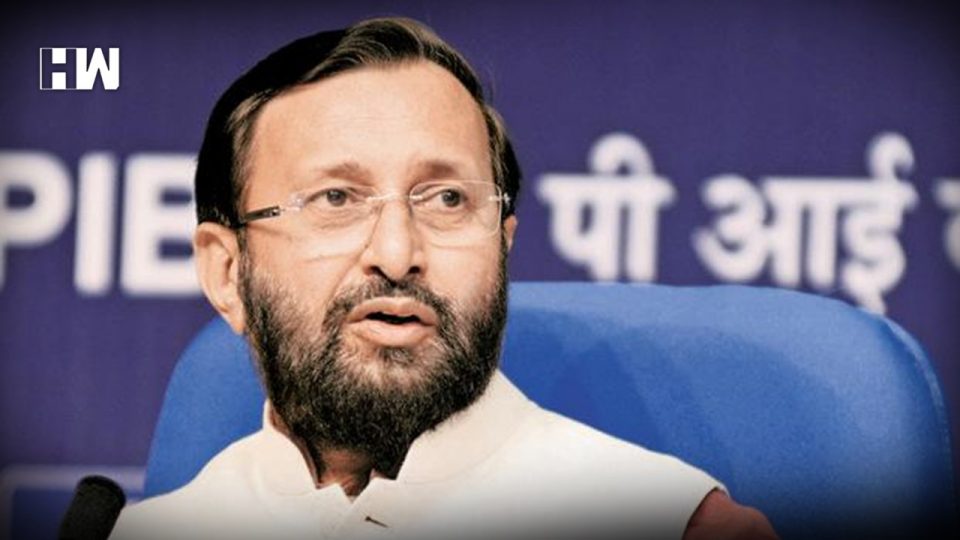New Delhi | Air quality in Delhi-NCR has improved and the number of days with “bad” air quality has come down by 33 per cent, Union Environment Minister Prakash Javadekar said on Thursday.
Speaking at an event to mark World Environment Day, which was on June 5, the minister said the situation “is not as bad” as being portrayed in the media.
“Media reports are always creating a picture that lakhs of people are dying of air pollution but it is not as bad. Yes pollution is there but efforts are on,” Javadekar said.
“Number of poor air quality days in Delhi in 2016 used to be 246, and in 2014 they used to be around 300, in 2017 it came down to 213 and now it has come down to 206. I am confident that when 2019 figures will come, the number of poor air quality days will further come down. This is a tremendous success. The days of poor quality air have reduced. It is a significant improvement,” he said.
He also said that the number of days with ‘moderate’ to ‘good’ air quality has increased from 108 in 2016 to 159 in 2018.
“Moderate to good days have increased. 108 days of moderate air quality in 2016 have increased to 152 in 2017 and now they have gone up to 159 days. This progress in good air days are the result of concerted efforts of last four years for the capital and NCR,” he said, adding that air quality monitoring systems which record the air quality index (AQI) show improvement in air quality.
An AQI between 0 and 50 is considered ‘good’, 51 and 100 ‘satisfactory’, 101 and 200 ‘moderate’, 201 and 300 ‘poor’, 301 and 400 ‘very poor’, and 401 and 500 ‘severe’.
Calling for people’s participation, the minister said that just wearing masks will not help and every individual has to act responsibly towards environment.
“Just wearing masks won’t help. People have to actively participate and act responsible towards environment. We have to save water and electricity, take cycle for distance up to two km, use public transport, maintain vehicles. All these activities will help reduce pollution. We will do better,” he said at the event on the theme of ‘Beat Air Pollution’.
In his address, Minister of State for Environment Babul Supriyo urged people to use car pool at least once in a week to contribute to the cause of environment and “not be afraid of the alarming figures in the war against pollution”.
He also said the ministry has now become a 24-hour working ministry as his senior minister wakes up at 4 am and he sleeps at 4 am.
“With my inclusion in this ministry, it has become a 24-hour ministry because my minister (Javadekar) wakes up at 4 am and I sleep at 4 am,” he said.
He said there was a lot that needs to be done for environment and referred to his daughter’s WhatsApp group saying they had a lot of ideas to protect environment.
“My daughter studies in Bombay and she has a WhatsApp group to which I was added and I am amazed to see the ideas they all come up with to protect the planet,” he said.
The event was attended by several senior officials of the ministry of environment, Central Pollution Control Board (CPCB) chairman S P S Parihar and officials from several state pollution control boards.
During the event, MoUs were signed between IITs across the country and respective state pollution control boards for joint efforts in combating air pollution.
The ministry also released several publications, including Orchids of India by Botanical Survey of India which identified over 700 species of orchids in the country.
Another book – Plant Discoveries – was released in which 438 plant species have been added to the Indian flora in 2018.
“I want to congratulate Botanical Survey of India and those who have identified 438 species of plants. I also congratulate the Zoological Survey of India for identifying 179 new species and I appreciate their research. National Tiger Conservation Authority has also made immense contribution in tiger conservation,” Javadekar said.
As an independent media platform, we do not take advertisements from governments and corporate houses. It is you, our readers, who have supported us on our journey to do honest and unbiased journalism. Please contribute, so that we can continue to do the same in future.

